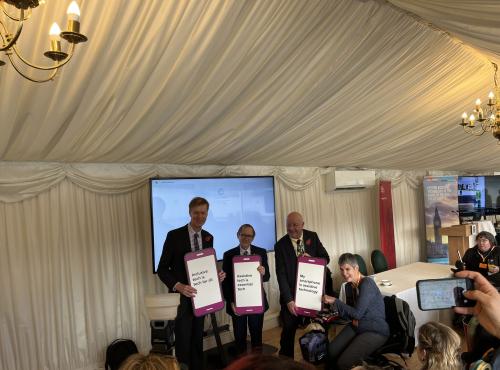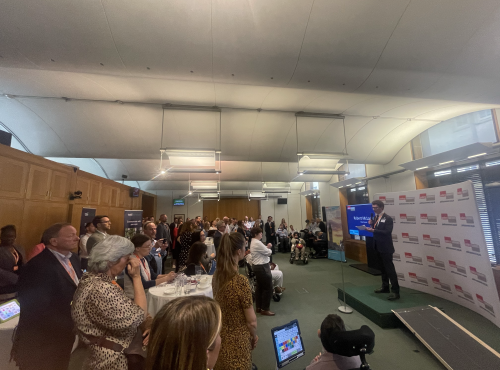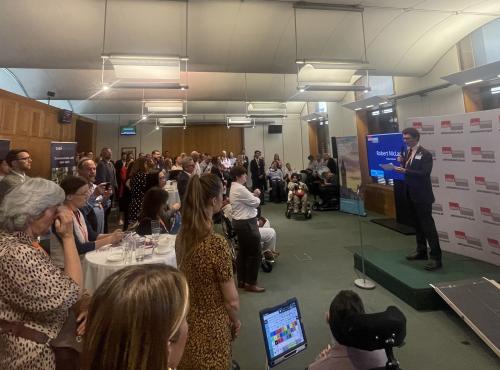Unlocking access to support with AI
The Open University has developed Taylor, a virtual assistant which provides an alternative way for disabled students to disclose a support need. Breaking from the typical format of disclosure processes, Taylor aims to provide an experience that is accessible, conversational and comfortable.
Through the ADDAPT (Artificial intelligence for Disability Disclosure Across Post-secondary Teaching) project, researchers at the OU partnered with Jisc to share their experiences and knowledge, and to help other universities assess their own readiness for AI solutions.
An innovative response to administrative burden
Disabled students often report that repeated form-filling, known as administrative burden, represents extra time, effort and stress that their non-disabled peers do not experience.
Taylor, developed in close consultation with disabled students, is an innovative use of artificial intelligence (AI) which could potentially smooth the process of requesting support for disabled students.
The idea captured the attention of Microsoft’s AI for Accessibility initiative. They provided support for the ADMINS (Assistants to the Disclosure and Management of Information about Needs and Support) project, leading to the creation of Taylor using Microsoft’s Azure AI capabilities. The Open University-based team collaborated with Microsoft and with OU students and staff to design an accessible virtual assistant that can be interacted with through speech or text, and can answer a wide range of questions from students as well as asking them to provide the information that university staff need to initiate individual support.
Students as co-designers
For a solution to truly meet the needs of disabled students, it was essential to include them from the start. Kate Lister, co-investigator on the project, explains: “For too long, disability disclosure processes have been based on a deficit model. Disabled students are required to describe themselves in ways that often feel uncomfortable in order to request support, and the university chooses whether or not it can grant their requests. It should be a partnership. So, we made sure Taylor was co-designed; we held participatory design workshops and we employed students on consultancy contracts throughout the project, making sure they had meaningful participation as partners throughout the project.” Ruth Tudor, student consultant, comments: “It was a pleasure to be involved in this project. I liked the ethos of student involvement from start to finish, and I believe Taylor will be a valuable addition to the disability disclosure process for students.”
Initial findings
Taylor was created in an iterative process with small initial trials and accessibility testing used to direct improvements, leading up to a main trial in which Taylor was offered to new students as they disclosed disabilities to the OU for the first time. The results of the main trial were very positive. Most participants preferred a conversation with Taylor to providing information through a form. The reasons for this included that it improved clarity by breaking the process down into a “simple conversation” which “flowed”, rather than a “scary long form”. Students participating in the trial also appreciated the way that they could provide and receive information through a combination of text, speech and videos.
Assessing AI readiness
It feels like universities have reached a tipping point in seeing the potential for AI to enhance the student experience. Partnering with the OU team, Jisc supported a series of knowledge exchange workshops with other universities, to explore where AI powered tools like Taylor could improve the disclosure process for students.
Jisc’s subject specialist for assistive technology, Kellie Mote, observed, “These immersive workshops sparked lots of ideas among university staff for how AI chatbots and virtual assistants could be implemented. Suggestions extended beyond disability disclosure, to encompass ambitious visions for more joined-up administrative processes and just-in-time staff development.”
Jisc’s new national centre for AI in tertiary education aims to support further and higher education providers in the UK to unleash the potential of AI to meet students’ needs in innovative and ethical ways.
Find out more
The ADDAPT project team are interested to share knowledge and develop new collaborations building on the success of Taylor. If you would like to work with us, contact project lead tim.coughlan [at] open.ac.uk (Tim Coughlan).
Authored by Kellie Mote (Jisc), Tim Coughlan and Kate Lister (Open University).
Editors Note:
Digital accessibility is about making digital content work for everyone. AI is expanding our toolbox to design content to be more usable – from helping us identify unreadable text to generating captions on videos. In this blog for Global Accessibility Awareness Day 2021, Kate Lister, (Open University), Tim Coughlan (Open University) and Kellie Mote (Jisc), discuss how AI-powered virtual assistants can help reduce administrative burden on disabled students.



